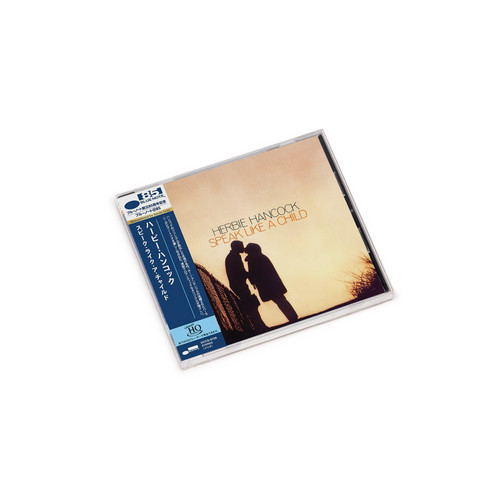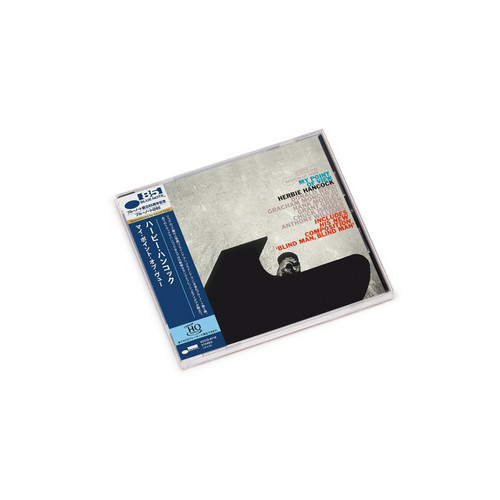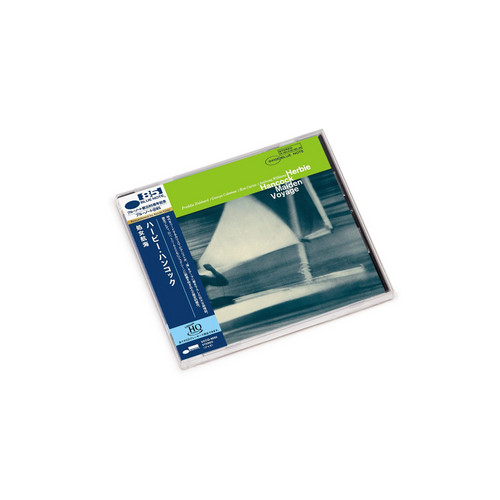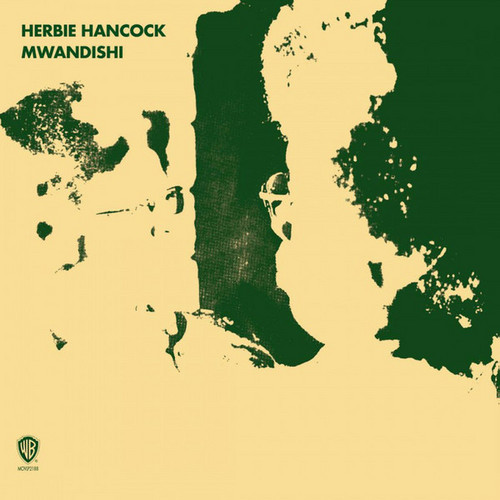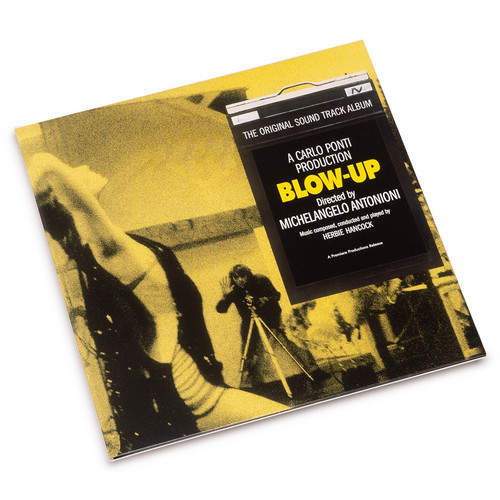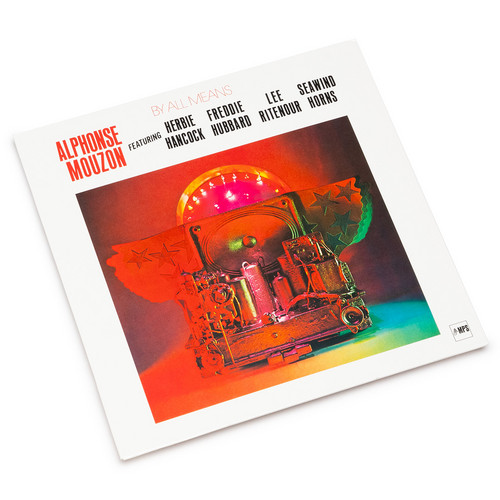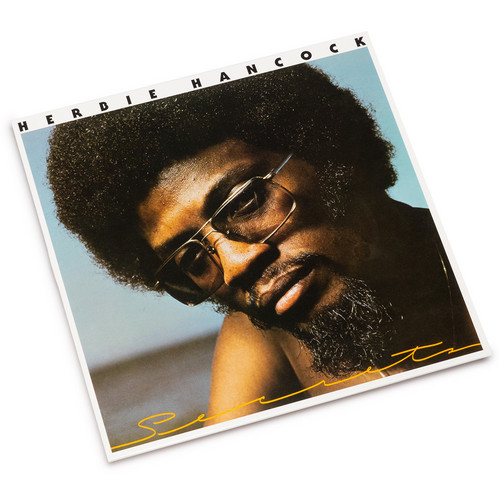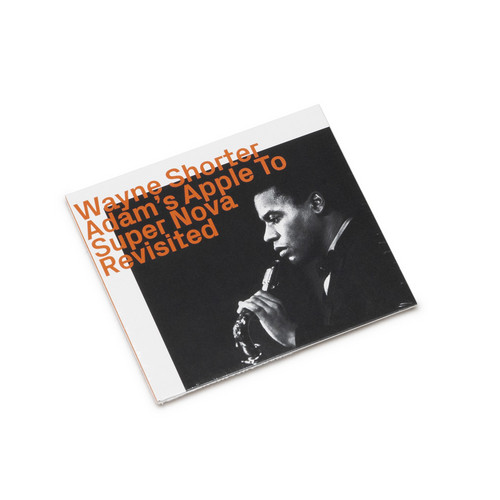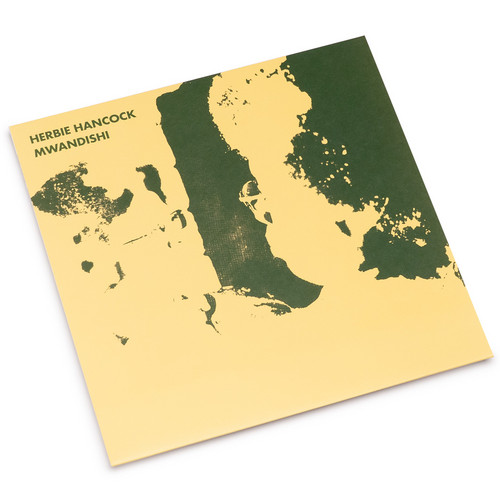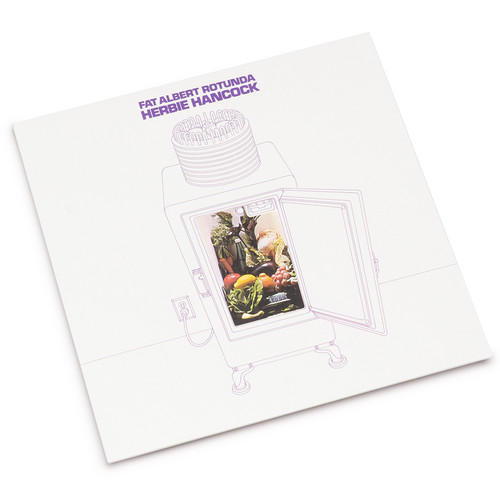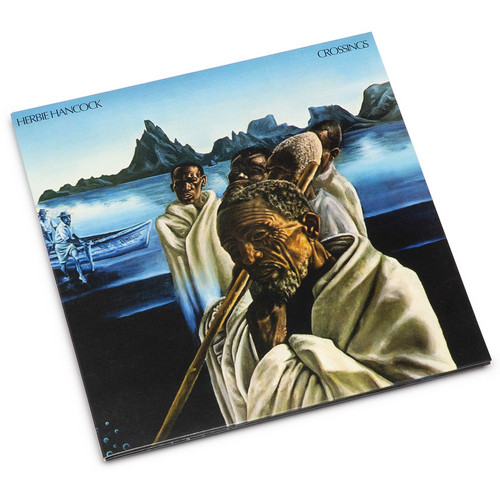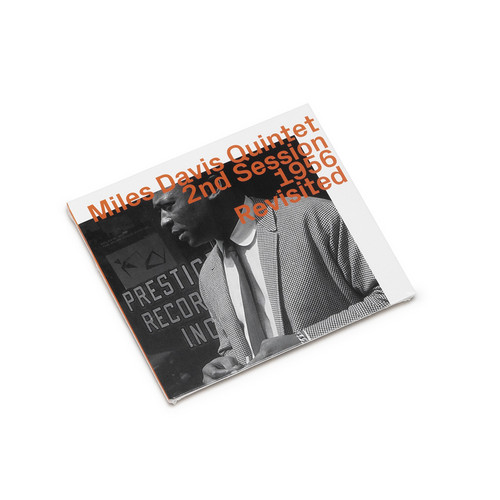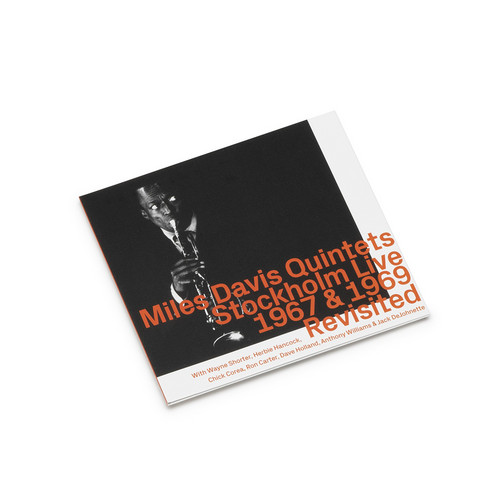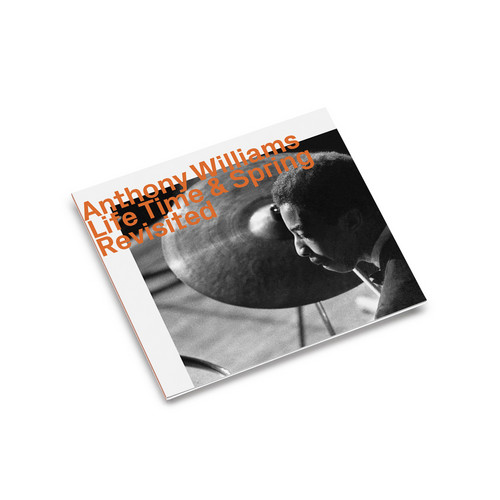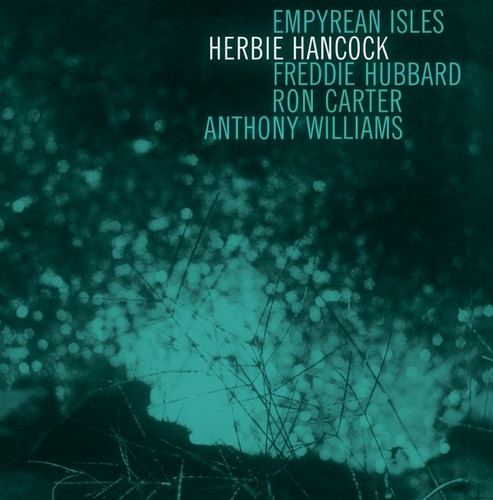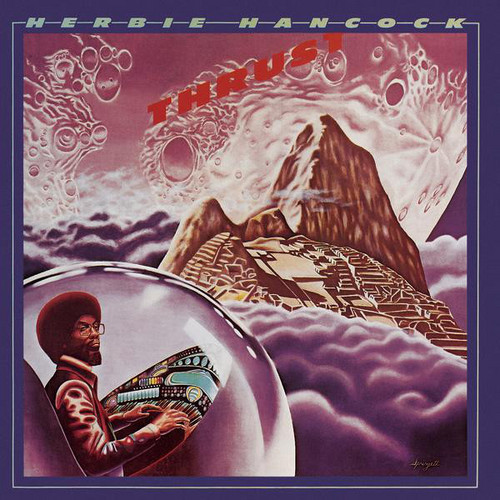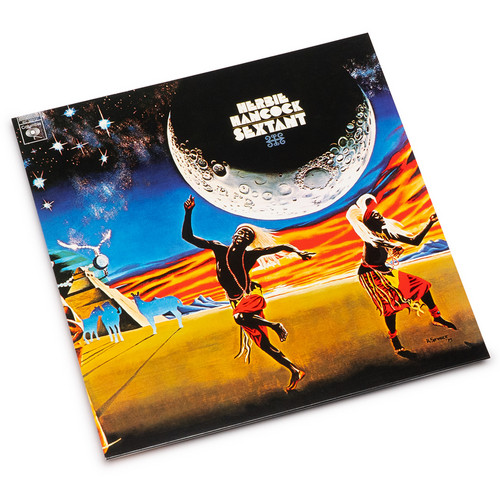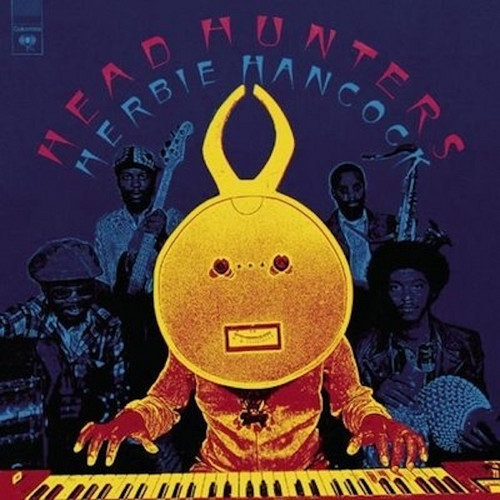Herbie Hancock
The Prisoner
** Special Time-Limited Offer ** The Prisoner is one of Herbie Hancock’s most ambitious large‑ensemble works, featuring Johnny Coles and Thad Jones on trumpet/flugelhorn, Garnett Brown and Jack Rains on trombones, Joe Newman on bass trombone, Hubert Laws and Romeo Penque on reeds, Tony Studd on tuba, Ron Carter on bass, and Grady Tate on drums, among others. Written in response to the assassination of Martin Luther King Jr., the music uses orchestral textures to explore themes of oppression and …
Speak Like A Child
** Special Time-Limited Offer ** On Speak Like a Child, Herbie Hancock opts for subtler shades with an unusual front line of Thad Jones on flugelhorn, Peter Phillips (or Jerry Dodgion) on alto flute, and Jackie McLean on alto sax, supported by Ron Carter on bass and Mickey Roker on drums. Carefully voiced harmonies create a soft‑focus glow around lullaby‑like themes that harbour unexpected harmonic turns. Hancock’s piano is restrained and lyrical, often leaving wide spaces around simple phrases,…
My Point Of View
** Special Time-Limited Offer ** My Point of View shows Herbie Hancock widening his palette with a larger band: Donald Byrd on trumpet, Garnett Brown on trombone, Hank Mobley on tenor, Grant Green on guitar, Chuck Israels on bass, Tony Williams on drums, and Patricia “Patty” T. on vocals on one track. The writing is richer and more layered, from soulful vamps to waltz‑like lyricism, yet unified by Hancock’s sense of structure and colour. The horns are given space to develop ideas; Green’s guitar…
Maiden Voyage
** Special Time-Limited Offer ** On Maiden Voyage, Herbie Hancock turns the small jazz group into an ocean vessel, steering a dream team of Freddie Hubbard (trumpet), George Coleman (tenor sax), Ron Carter (bass), and Tony Williams (drums) through a suite of sea‑evoking pieces. Modal harmonies, open forms, and long, swelling melodies create a sense of expanse; Carter and Williams suggest tides and undertows, while Hubbard and Coleman trace arcs that feel both exploratory and inevitable. Hancock’…
Mwandishi
This album is one of Hancock's first departures from the traditional idioms of jazz, as well as the beginning of an original and creative style which eventually appealed to a wider audience. In addition, Mwandishi was Hancock's attempt at continuing the musical principles and styles he explored in his previous experiences with Miles Davis. Mwandishi was recorded at Wally Heider Studios Studio C, in San Francisco, California in January 1971, by Hancock's Mwandishi Sextet. The recording incorporat…
Blow-Up (The Original Sound Track Album)
Blow-Up is a soundtrack album by Herbie Hancock featuring music composed for Michelangelo Antonioni's cult film Blow-Up, released in 1966. Musically the songs evoke the ambience of swinging Sixties' London with grooves that create effective bluesy Jazz moods on the slow pieces, and funky ones on the up-tempo tracks. The album features performances by Hancock on keys, Freddie Hubbard and Joe Newman on trumpet, Phil Woods and Joe Henderson on sax, Ron Carter on bass and Jack DeJohnette on drums. R…
By All Means
At the time of his death in 2016 at the age of 68, drummer, composer and multi-instrumentalist Alphonse Mouzon had for decades been a major force within the jazz, fusion, R&B and pop arenas. The early eighties was a time when Mouzon toyed with disco and channelled funk. His musical amalgam was a far cry from the Saturday Night Fever brand – he brought more funk, more soul, more spontaneous creativity into the mix. For By All Means, Mouzon brought together musicians who were masters in virtually …
Secrets
*2023 stock* Secrets is a jazz-funk album by keyboard player Herbie Hancock. It is also Hancock's seventeenth album overall. Participating musicians include saxophonist Bennie Maupin and guitarist Wah Wah Watson.
The album clearly followed from its predecessor Man-Child. As ever, Paul Jackson's basslines were critical, and the other regular member Bennie Maupin continued to provide most of the solos alongside Hancock. Man-Child had seen the addition of electric guitar to Hancock's sound, and Sec…
The Piano
As with Directstep (recorded one week previously), this album was recorded, and originally only released, in Japan. It was one of Hancock's most successful albums in Japan, perhaps because it was entirely solo piano. Hancock tackles jazz standards such as "My Funny Valentine", "On Green Dolphin Street" and "Some Day My Prince Will Come" while also performing four original compositions.
Adam’s Apple To Super Nova "Revisited“
“The word ‘jazz,’ to me, only means I dare you.” - Wayne Shorter
Mwandishi
After releasing their Warner Bros. debut, the Herbie Hancock Sextet underwent a major transformation in the early '70s. Over the course of a year, every member was replaced (except Herbie Hancock himself and bassist Buster Williams) and each adopted Swahili names. (Williams even led the group in occasional sessions of Buddhist chanting.) Hancock chose the moniker Mwandishi (meaning 'composer'), and the Sextet became unofficially known as the Mwandishi Band. The lineup's first album -- simply tit…
Fat Albert Rotunda
Fat Albert Rotunda is the venture into jazz-funk by keyboardist Herbie Hancock. The record is centered around the music Hancock wrote the Fat Albert cartoon show. It's one of the records which appeared in the period between his landmark album Maiden Voyage of 1965 and his 1973 classic Head Hunters. Fat Albert Rotunda is a unique item in Herbie Hancock's long and diverse catalog, with funky tracks like "Fat Mama" and modern jazz-oriented tunes like "Tell Me A Bedtime Story". The sextet which is …
Crossings
Crossings is the second album in the experimental sextet trilogy Herbie Hancock released early 1970s. His electronic movements are further explored and the whole sound comes alive in the three long tracks this album consists about. The album opens with some African drums before moving on to some of the unearthed sounds the sextet created for this album. Centerpiece "Sleeping Giant" is nearly 25 minutes long and is divided into five funky and groovy parts. A transcendent experience that has grown…
2nd Session 1956 Revisited
Here is a chance to hear Miles Davis in something close to real time. Small matter that most collectors of hard bop will have these sides already and will be familiar with a particular running order. Perhaps those who have invested in the complete sessions will have a clearer sense of the continuity of these remarkable sessions, but that now familiar obsession with the burrs and snarf of the studio process may win out over musical appreciation. What happened at Van Gelder’s on October 26 1956 is…
Miles Davis Quintets Stockholm Live 1967 & 1969 Revisited
Temporary Super Offer! 'Was there more than one Miles Davis? Could he be both the Prince of Darkness and the purveyor of cool? A drug addict and an athletic boxer? A hip bebopper and a protohippie? A flamboyant dresser and a shy vulnerable soul? A brutal misogynist and an insecure romantic? The answer is yes, and yes. Miles Davis was both a creator and a destroyer. His chameleon-like nature can be explained by the times in which he lived and created his art. These live recordings in Stockholm, S…
Life Time & Spring (Revisited)
Temporary Super Offer! "Life Time posited a radicalism quite different from the other watershed recordings of 1964. Anthony Williams had an overt, unconventional approach to form, accentuated by the time constraints of a LP side and the various configurations he employed... By the time the 19-year-old Williams returned to Van Gelder Studio to record Spring with Hancock, Peacock, Rivers, and Shorter, the avant-garde was ascending... He retained some of the parameters
of Life Time ..." - Bill Sho…
Empyrean Isles (LP)
Reissue of Empyrean Isles a classic Herbie Hancock album from 1964. From soul-jazz cuts to avant-garde explorations, Empyrean Isles revealed that Herbie Hancock was a jazz icon in the making. Clear vinyl.
Thrust
* 180 gram vinyl * The cover of Thrust reveals a lot of the album. Herbie's sitting comfortably his spaceship controlled by a synth froman alien world, reachingto the clouds and beyond. Well, that's what his stature was in 1974 - one of the seminal renewers of Jazz by incorporating new electric instruments like theARP synthesizer.
Thrust is the follow up to Head Hunters using the same band except for drummer HarveyMason, who is replaced by Mike Clark, a Jazz great in his own right.
Again, only f…
Sextant
* 180 gram vinyl * Herbie Hancock is one of the most prolific jazz pianists of the 20th century. A child prodigy, he played with the greats such as Donald Byrd and Miles Davis. He was one of the first to embrace and master the electric piano, but he always stayed true to the acoustic sound. In fact, he always bounced back and forth between his electronic and acoustic sound, touching upon almost every development in R&B, Funk and Jazz while retaining an original and distinctive voice.
Sextant fro…
Headhunters
**180 gram audiophile vinyl** Herbie Hancock is one of the most prolific jazz pianists of the 20th century. A child prodigy, he played with the greats such as Donald Byrd and Miles Davis. As he was a bit of a geek, he enjoyed gadgets & buttons and he was one of the first to embrace and master the electric piano, but he always stayed true to the acoustic sound. In fact, he always bounced back and forth between his electronic and acoustic sound, touching upon almost every development in R&B, Funk …

